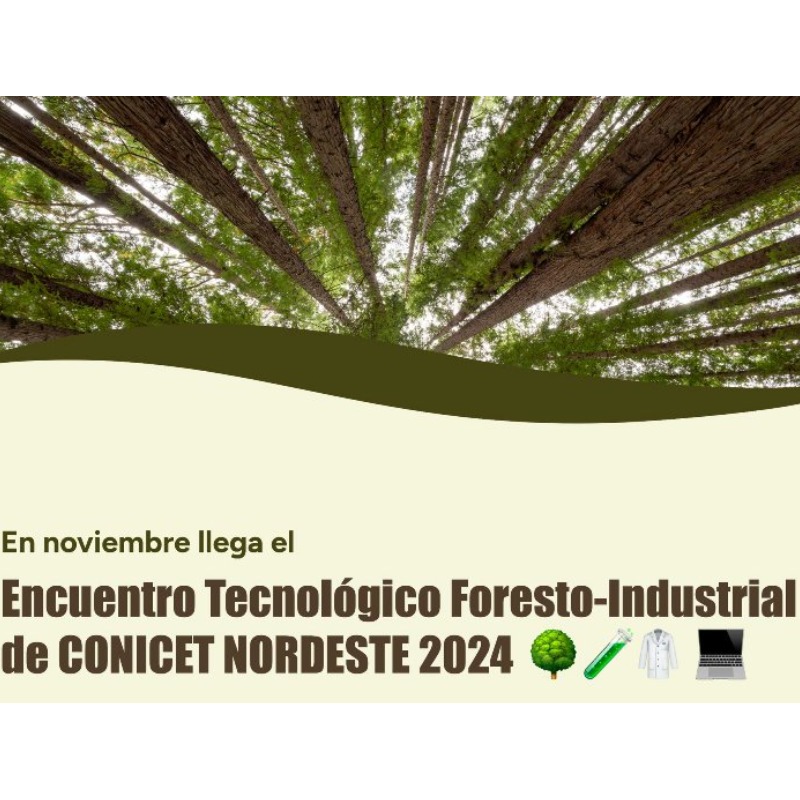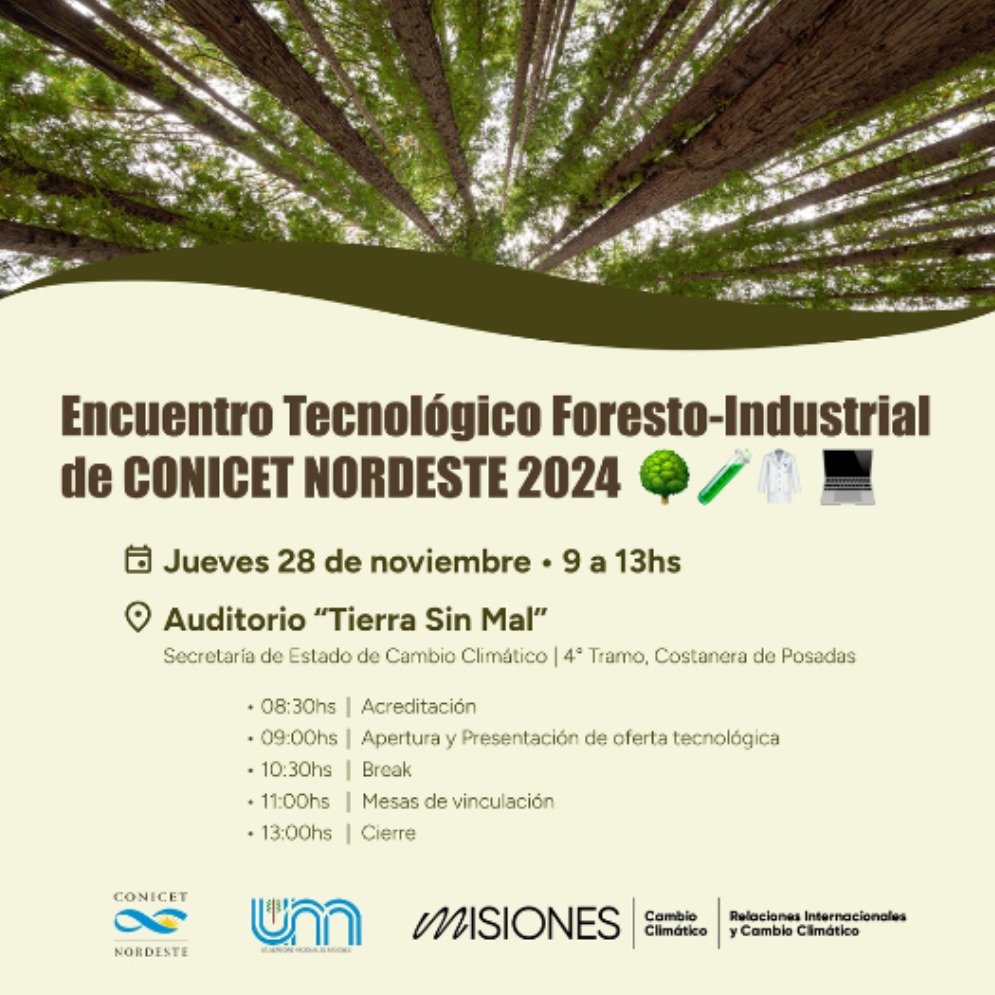
Posadas | Entrepreneurs and scientists join the Forest-Industrial Technological Meeting organized by the Northeast Conicet
On Thursday, November 28, the Earth without Evil auditorium in Posadas will be the scene of the Forest-Industrial Technological Meeting (ENTEC) organized by the Northeast CONICET in conjunction with the Ministry of Climate Change of Missions. The event seeks to strengthen collaboration between the scientific, business and government sector to promote projects in the forest-industrial chain.
Everything is ready in Posadas for the Foresto-Industrial Technological Meeting (ENTEC), organized by the Conicet Northeast and the Ministry of Climate Change of Missions. The event, aimed at companies in the Forest-Industrial chain, will take place in the day on Thursday, November 28 at the Earth without evil auditor Objective of generating joint projects that positively impact society.In this edition, the meeting will address technologies and capabilities applicable to forest-industry, highlighting the importance of collaboration in research and development. The event will have exhibitions of outstanding researchers from CONICET and UNAM, who will present innovations and scientific tools oriented to the sector.
IT MAY INTEREST YOU
 Misiones | CONICET Northeast summons companies to participate in the Forest-Industrial Technological Meeting 2024
Misiones | CONICET Northeast summons companies to participate in the Forest-Industrial Technological Meeting 2024
On November 28, the city of Posadas will be the scenario of the Forest-Industrial Technological Meeting 2024 for companies in the region, an event organized by CONICET Northeast that aims to strengthen the relationship between science and companies in the sector of production and wood industry. The day will take place from 9 a.m. to 1 p.m. at the Earth Auditorium without evil, in the Secretariat of Climate Change State.
 COP29 in Baku | FAO organizes virtual event on sustainable forest bioeconomy for mitigation and adaptation to climate emergency
COP29 in Baku | FAO organizes virtual event on sustainable forest bioeconomy for mitigation and adaptation to climate emergency
Within the framework of the COP29 of climate change in Baku, the United Nations Food and Agriculture Organization (FAO) will lead a virtual event focused on sustainable forest bioeconomy as a key tool for mitigation and adaptation to climate change.
 Natural Christmas | Promote responsible purchases at the end of the year parties with sustainable decoration and forest gifts
Natural Christmas | Promote responsible purchases at the end of the year parties with sustainable decoration and forest gifts
The network of forest and environmental communicators in Latin America and the Caribbean (Recofalc) set out to promote a campaign that helps demystify the use of artificial trees over the natives. «These occur mainly from oil, generating a high carbon footprint. In addition, its transport to long distances and its posterior waste in tons of plastic and iron aggravate their environmental impact. Opting locally cultivated natural trees not only reduces the impact on emissions, but also fosters local economies and the sustainable use of the earth, ?they highlight from Recofalc.





















